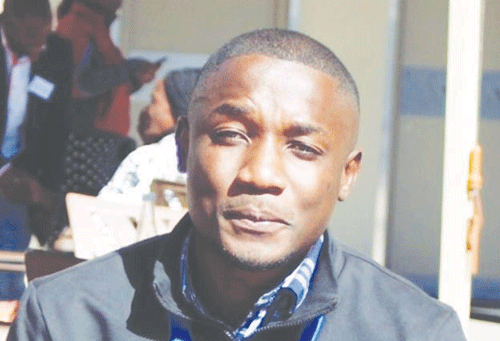David F. Shoombe
Volunteerism is the process of working and offering services to an institution without the expectation of remunerations. A volunteer is a person who intentionally and willingly contributes to the right course of the community in need and the state at large.
The history of volunteerism is traced back to ancient times when young men volunteered to go to war to defend the sovereignty of their states and protect them against their foes. It is a practice that is used to date.
During Covid-19, we have witnessed community leaders and retired medical professionals going back to work because they have seen the necessity to offer their services to prevent the collapse of the Namibian health systems. It is with this note that it is necessary to highlight some of the benefits that are brought by volunteerism, and how Namibian youth can be able to awaken and become more engaged in this right course. In a country where large numbers of young youth are finding it very hard to get jobs due to high unemployment in all sectors, it is imperative to change the strategy and find new ways to contribute to the realisation of their life goals.
When a young graduate looks at the statistics that indicate that almost 50% of qualified young graduates are not able to secure an entry-level job in the public and private sector, the questions have to arise: What can I do better? What should I do to have a competitive advantage? And how can I beat the best to be the one? All these questions shall be answered by character development through volunteerism and gaining first-hand experiences.
On 5 December 2023, the Young African Leadership Initiative Alumni Chapter Committee (YALI) hosted a Volunteer Appreciation Day to honour the YALI Alumni and Namibian volunteers in general, who have done an incredible job during 2023.
My takeaway from this initiative is that many of the successful young professionals are the ones who are willing to offer their spare time to the improvement of vulnerable communities and institutions in which their skills are required. Parallel to that, personal fulfilment and seeing the results of the services contribute to personal growth and improve human relations. These young individuals have highlighted how they managed to gain important connections, improve their communication skills and get appointed to regional and continental boards. These takeaways allowed me to ask why we cannot implant the spirit of volunteerism among all the energetic young men and women of our generation to learn new skills and build upon their work profiles.
Skills development
It is one thing to gain a master’s degree in your respective field, and it is another thing to perform to the best of your qualifications in your respective field without practical knowledge. Furthermore, it is one thing to get a vocational diploma in your respective field, and it is a different thing to write a business plan or funding proposal for your project.
Therefore, when an individual has decided to work for an organisation, such as a civil society organisation, youth agency, business or government as a volunteer, they will acquire skills that are not taught in college and can use them effectively. Things like practical data analysis, public speaking and presentation, communication, analytical writing and attention to detail are some of the important skills that can be learned through volunteerism.
Challenges
Indeed, it is easy to speak and difficult to act, based on the situations surrounding us. In my conversation with some of the volunteers, I have realised that there is dishonour among the persons who work without being paid, and some have envisioned quitting offering services due to societal disencouragements.
Indeed, people will throw stones at you when you are doing something. However, it is up to you to decide whether to throw the stones back or use them to build your house. Some challenges are self-driven, which are rooted in the pride of acquiring a certain certificate, and the individual expects everything to be financially rewarding.
With these challenges, you need to develop a strong mindset and have a thick skin if you want to move forward; be practical and patient, and look at the bigger picture. You will be surprised at how much you will gain from the experience.
Where and how?
As a youth leader, I realised that sometimes young people think they know things, but our thoughts are limited by our little exposure to the world. Let us embrace the culture of asking the right questions. You can volunteer for organisations, such as the Red Cross, the United Nations, the National Youth Council structures, regional and local authorities projects as well as universities, colleges, community libraries, etc.
You can also apply to fellowships such as Climate Fellowship, YALI and African Union Youth Volunteer Programme. What is very interesting is that not all volunteers are not paid. You will be surprised when you find yourself astonished by the financial and non-financial benefits you will gain.
In the final analysis, there is much more that you can do for your country than you can imagine. There are institutions somewhere in Namibia and the world that require your services.
Use this festive season to think about your journey next year and how you will be able to navigate life. Note that volunteerism is not only for the unemployed but for the people who need to change their lives and improve their skills. Be strategic, and never fall backwards but forward. *David F. Shoombe is a chapter coordinator for the Young African Leadership Initiative in Namibia. He has a keen interest in youth development and international relations. These are his personal views. He can be reached at davidfono9@gmail.com


